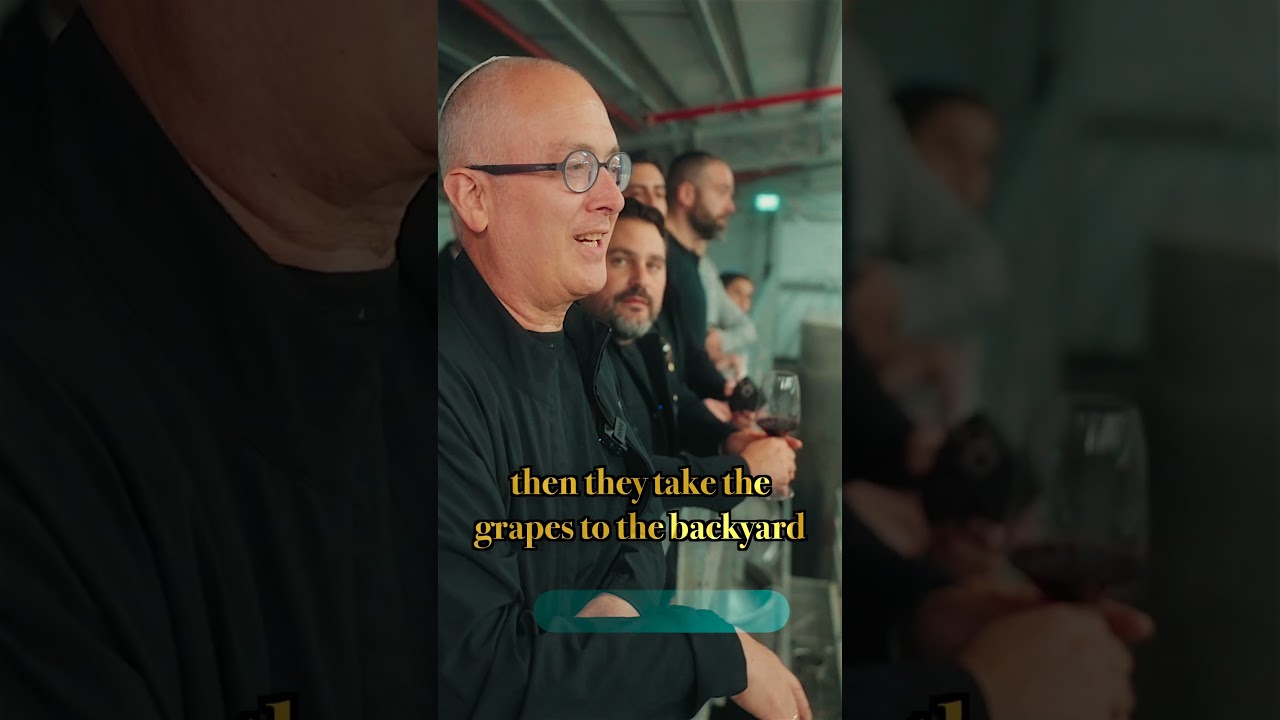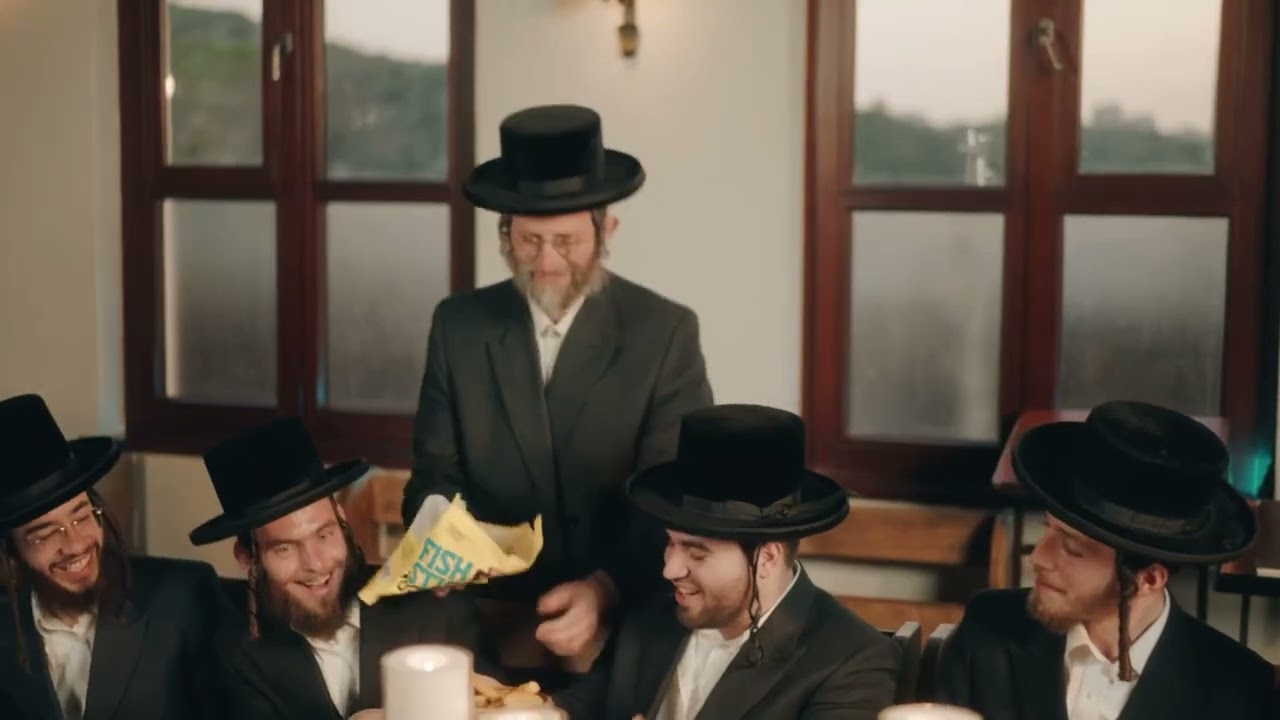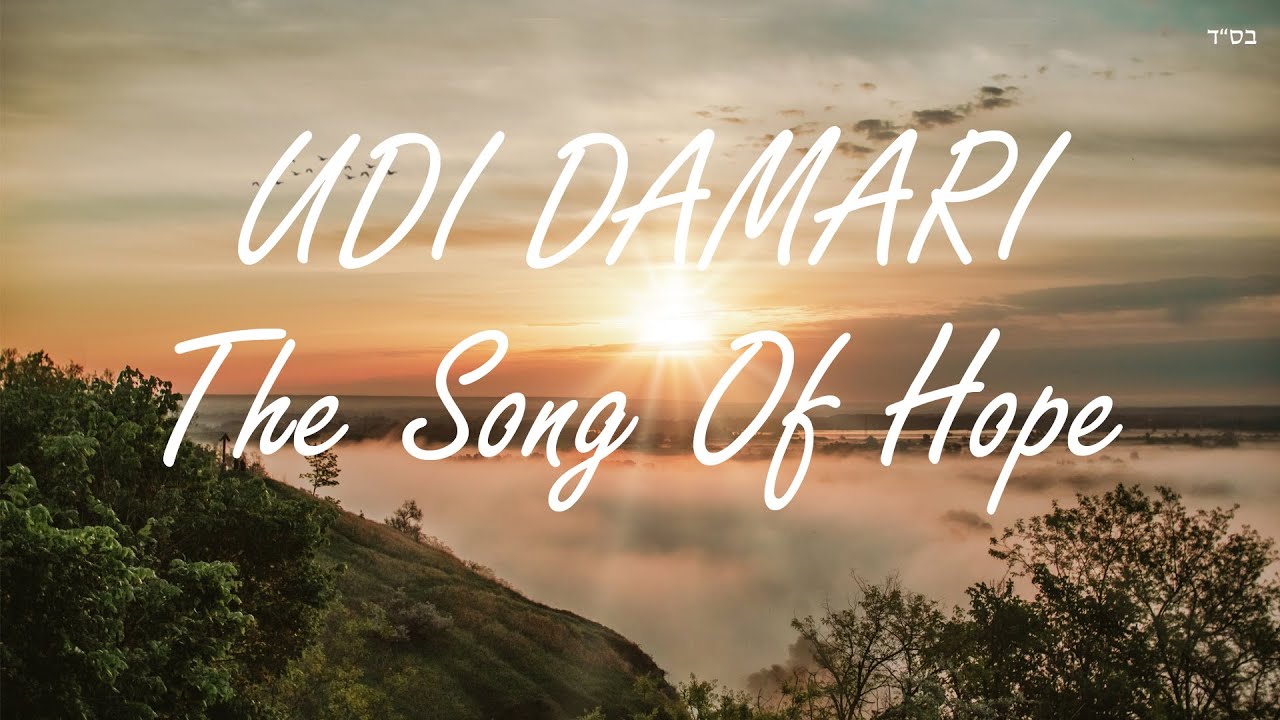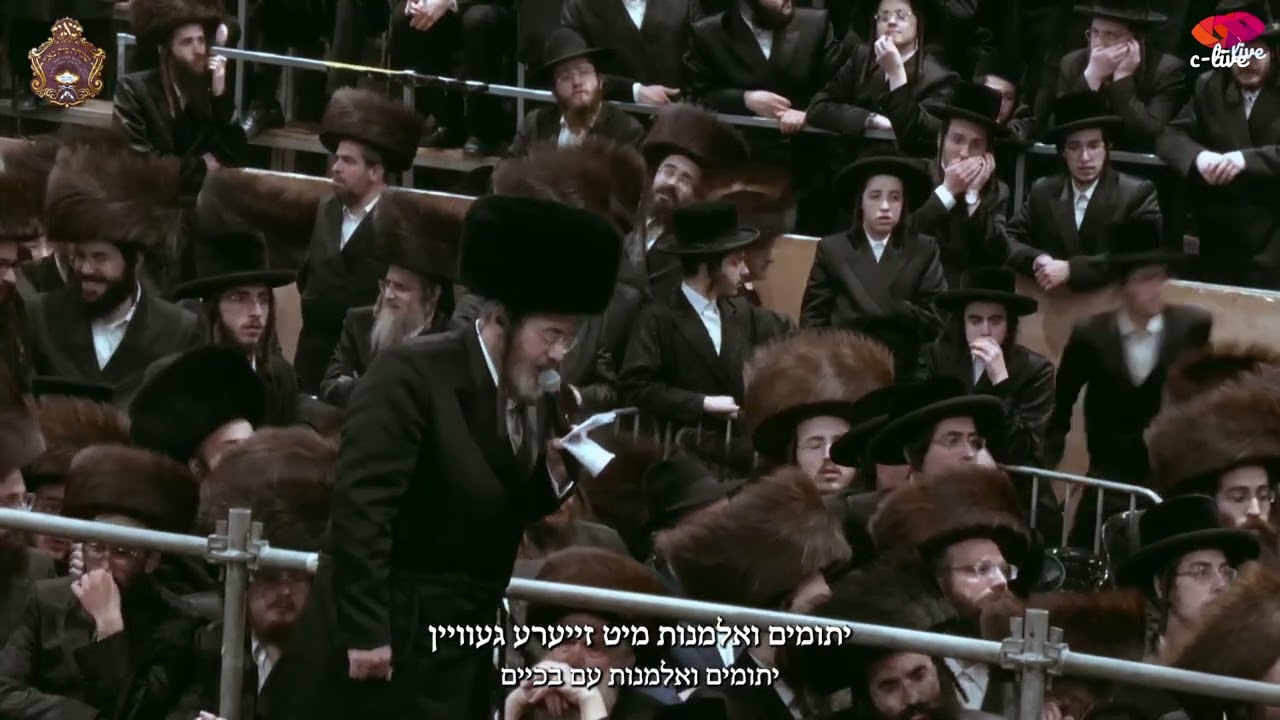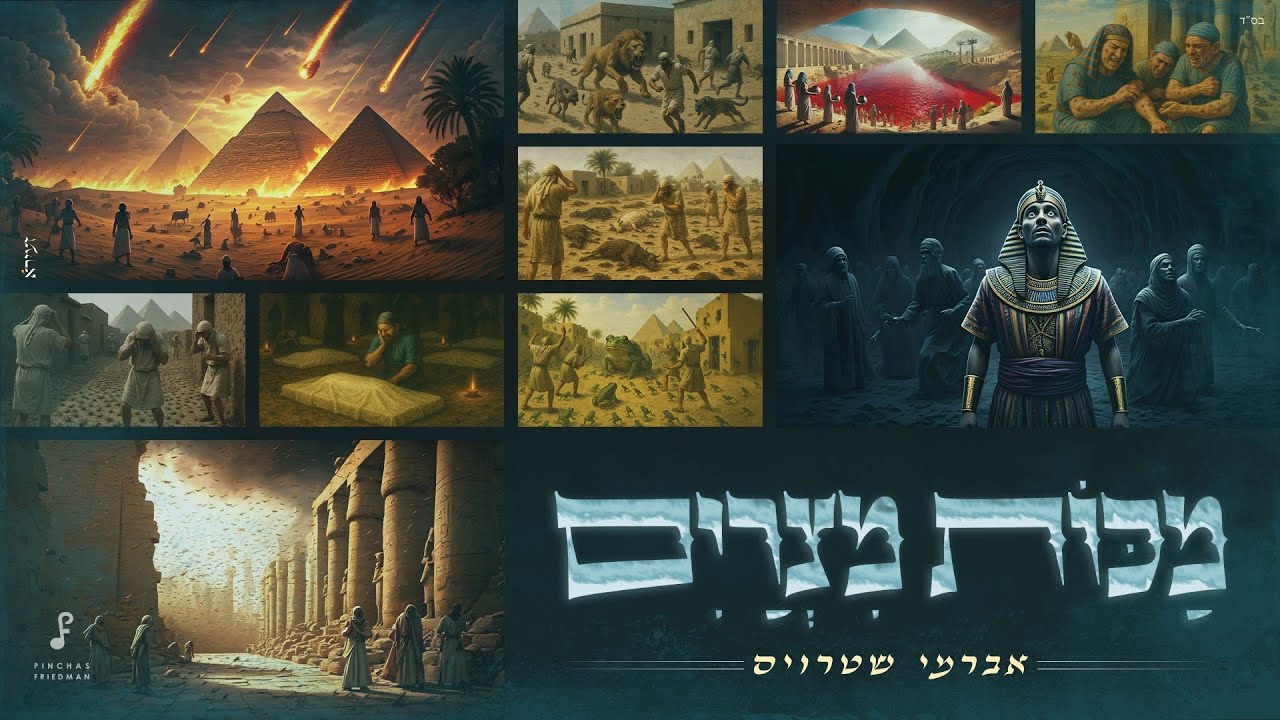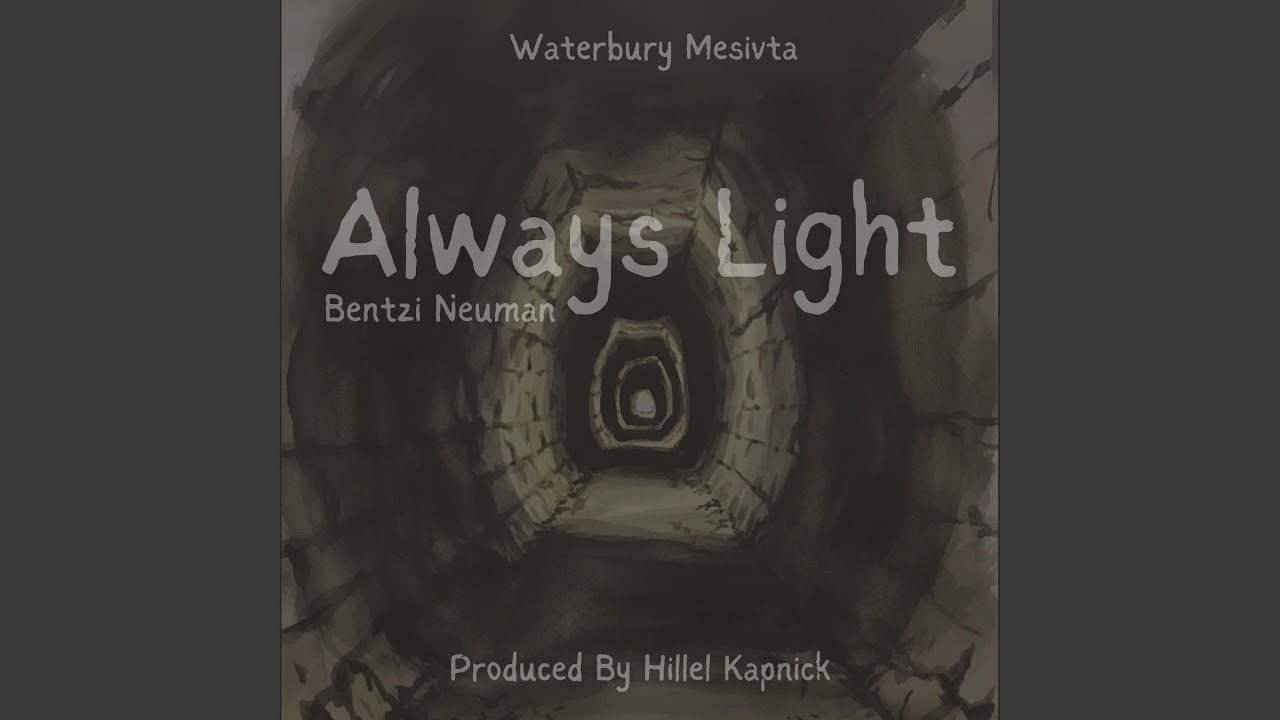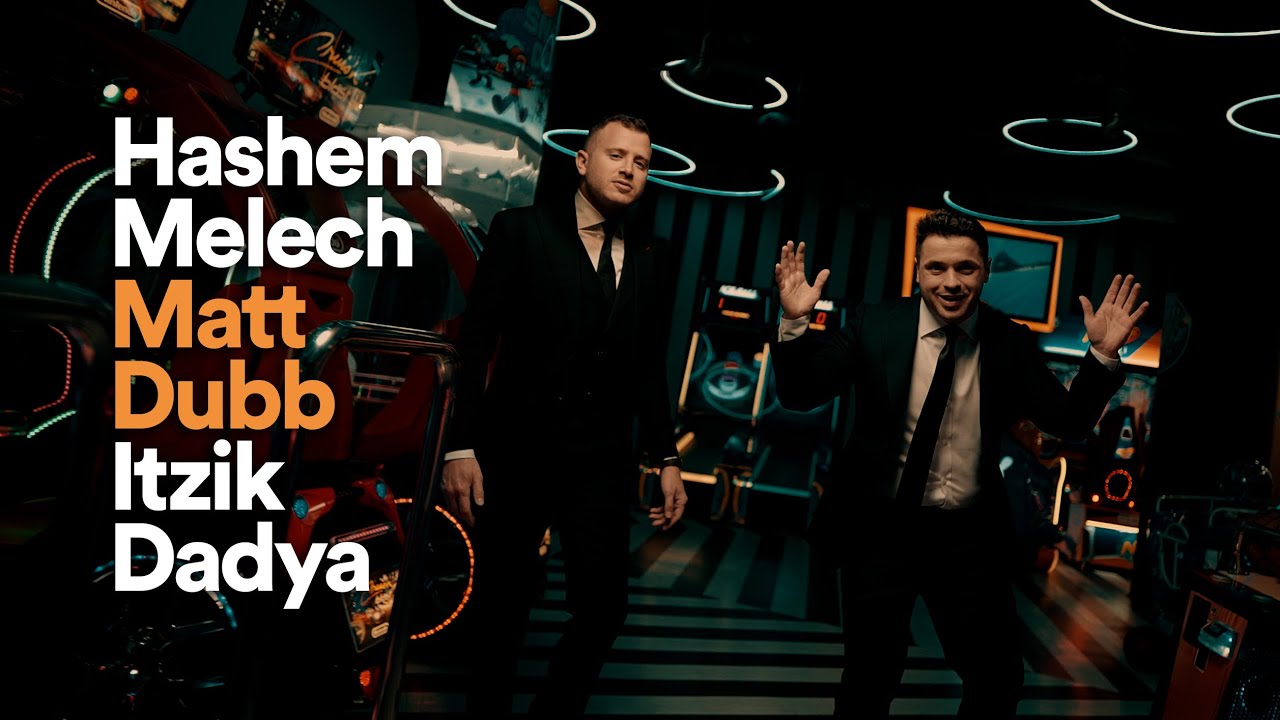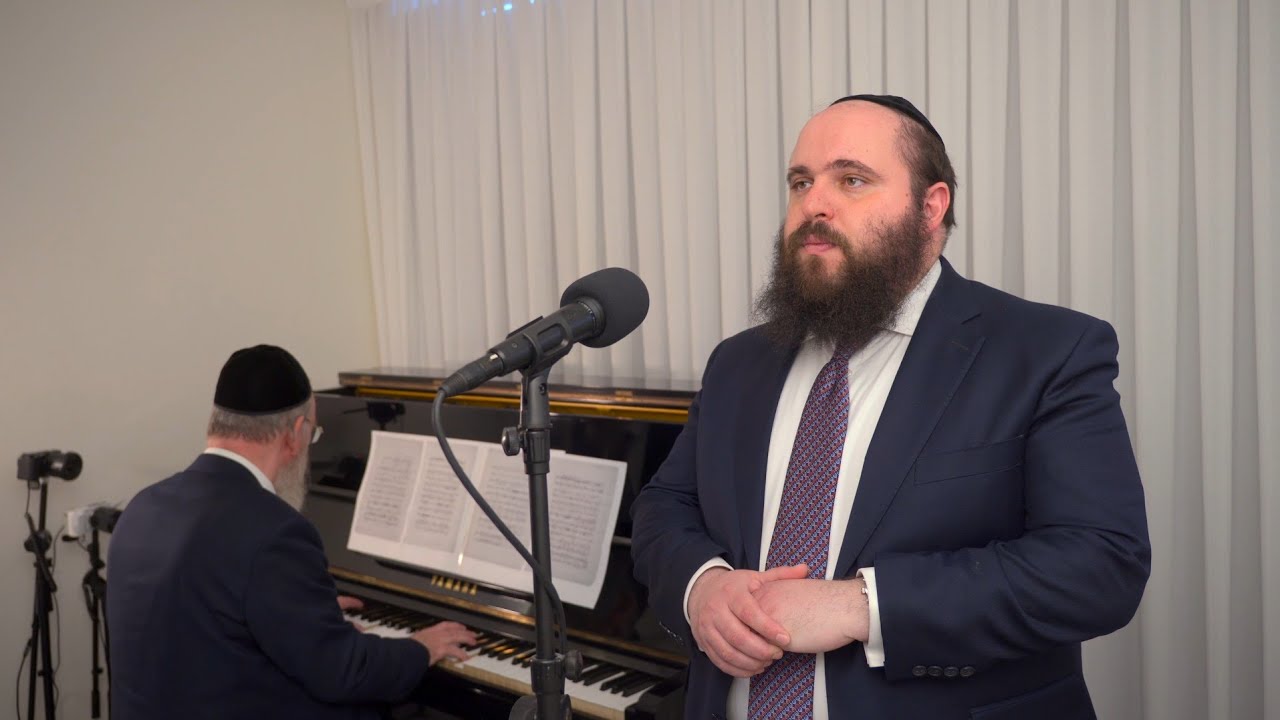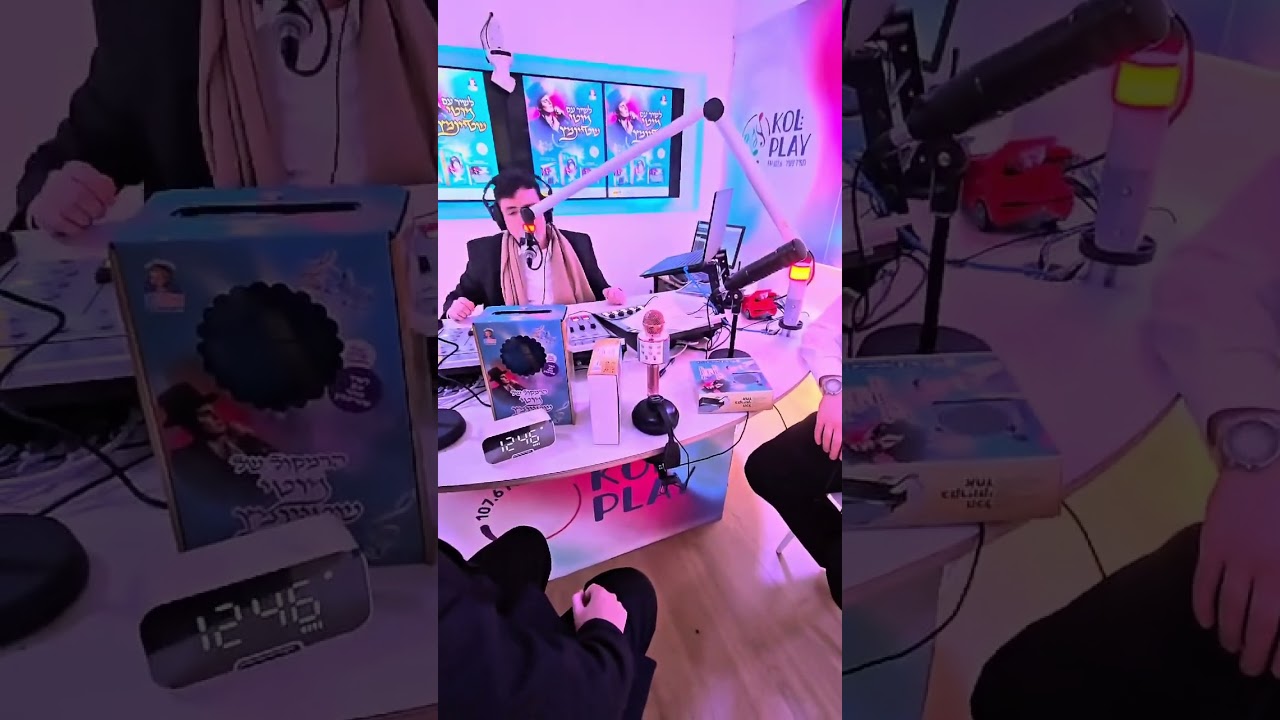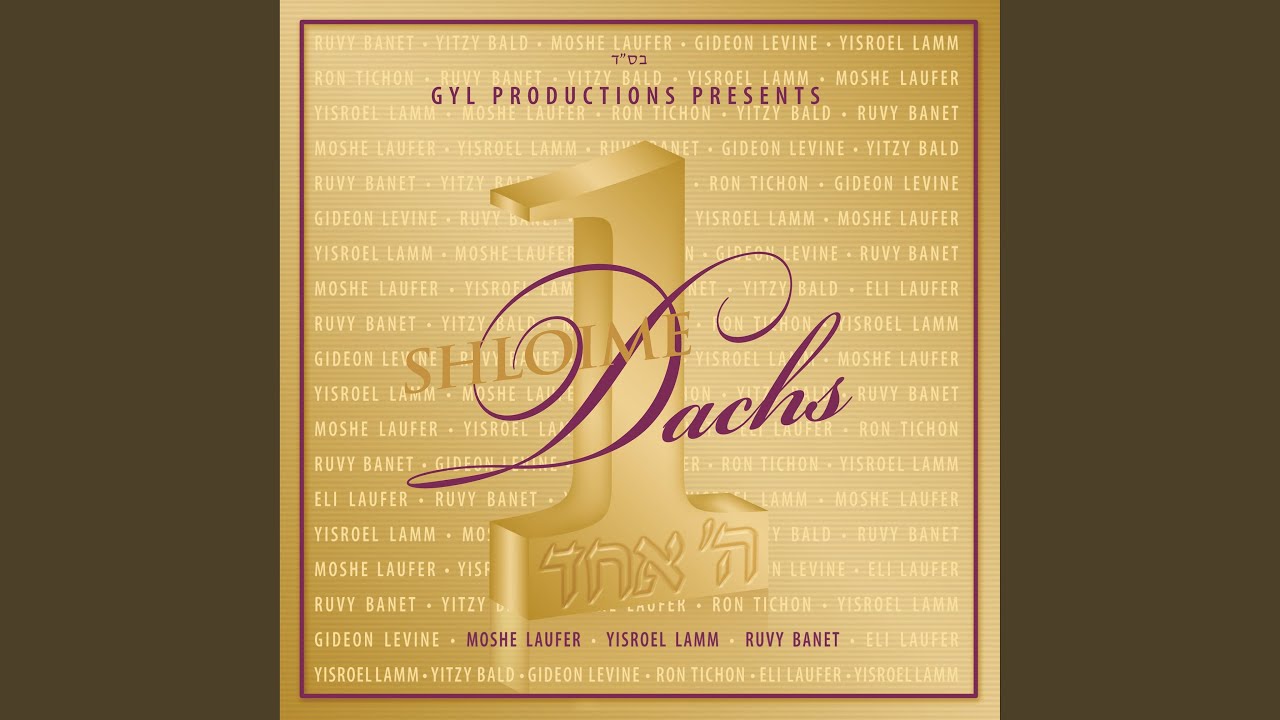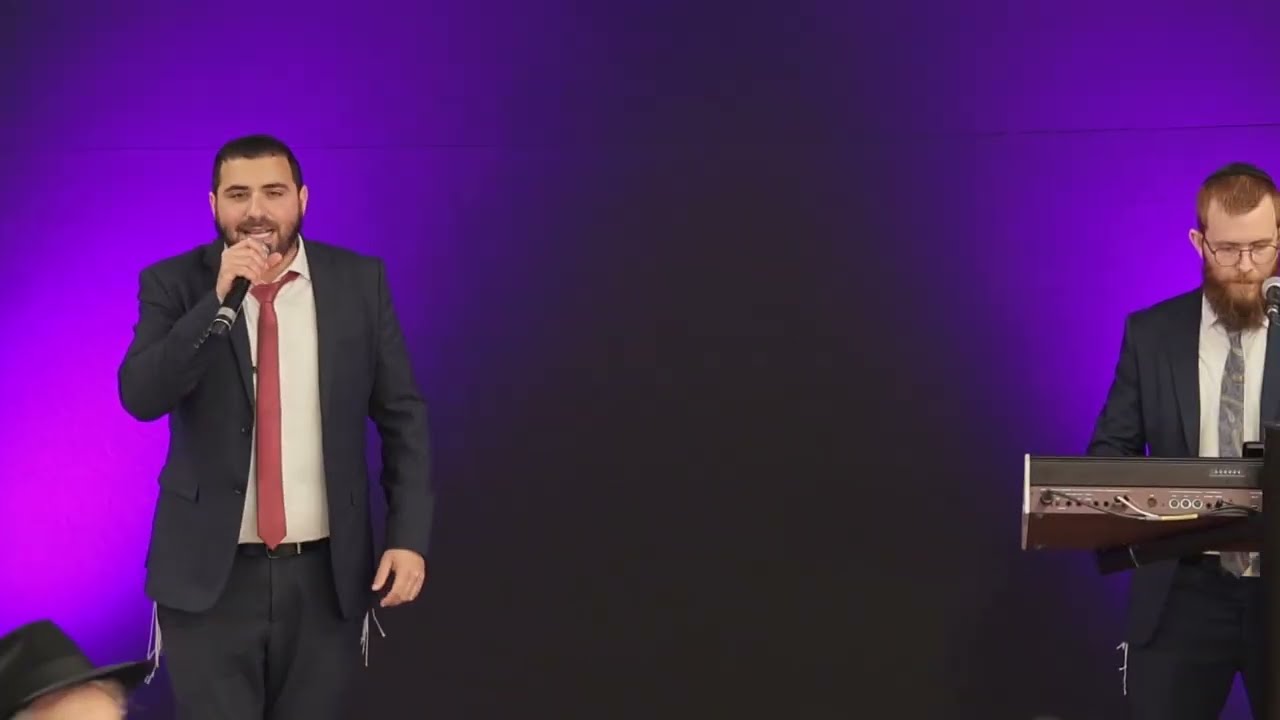LIPA SCHMELTZER – Searching For Moshe Yossi
Up Next
Shared on March 20, 2013
Poised on the cusp of the Bar Mitzvah of his oldest child, Chasidic pop star Lipa Schmeltzer takes an emotional journey back through time, as he seeks to continue the legacy of the grandfather he never knew through the son who carries his name, in a documentary titled "Searching for Moshe Yossi."
The second to youngest of twelve, Lipa was the first member of his family to name a child Moshe Yosef after his grandfather.
"A lot of my family didn't use the name Moshe Yosef because they wanted to name their sons Yaakov Yosef after the previous Skverer Rebbe," explained Lipa. "But family begins at home and while my father may not have ever said anything about it, I wanted to name a son for his father."
In an effort to give his son Moshe Yossi a glimpse into his roots, Lipa planned a pre-Bar Mitzvah trip to Budapest so that his son could have the opportunity to put on tefillin for the first time at the grave of the great-grandfather whose name he carries.
"I wanted my father to come with us," said Lipa. "I wanted him to have a chance to say kaddish for his father but he refused. He said Hungary is finished, finished, and he was never going back."
Lipa's father, R' Reuven Schmeltzer, survived the war, escaping Hungary on the famed Kastner train, spending several weeks in Bergen Belsen before finally arriving to safety in Switzerland.
Armed with the knowledge that his grandfather had died in 1945 of typhus and had been buried by his brothers in a mass Jewish grave, known as a kever achim, after the war, Lipa traveled to Budapest with his son for what proved to be a difficult search.
"My father told me that there was a plaque that had his name on it at the gravesite. We searched one cemetery, then another, looking through the snow at thousands of names for my grandfather's name, finally going to the official cemetery office in Budapest that listed the burial places of lots of Schmeltzers. There was one Yosef Schmeltzer, but he died in 1940 and I knew my zaidy died in 1945," recalled Lipa.
Frustrated, Lipa called an uncle in Switzerland who gave him very specific details about his grandfather's place of burial.
"He told me exactly where to go in the cemetery and that the grave had a single headstone with the name Balfon on it," said Lipa. "He said all around the grave there were plaques that had the names of the people who were buried there."
Determined to find his grandfather's name, Lipa called in workers to clear away the piles of snow that blanketed the area only to discover that it was completely overgrown by brush. Undaunted, Lipa hired landscapers to come in and cut the thick undergrowth and vegetation that had overtaken the plaques that surrounded the grave.
"I couldn't see the names on the plaques," said Lipa. "I took a knife, scraped away the dirt and kept looking, but I just couldn't. We came so far for Moshe Yossi to put on tefillin at his zaidy's kever. I was sure that when we found his name it would be the sign that Moshe Yossi should put on tefillin. But I realized that G-d was trying to tell me something. Don't focus on the substance, focus on what is in your heart and I told Moshe Yossi, 'My zaidy isn't in a plaque. He is in heaven, he is in your heart, he is in my heart and he is in all of us.' We took out the tefillin and Moshe Yossi put on his tefillin for the first time at his great-grandfather's kever. There are no words to describe that moment."
The documentary, a Sparks Next production produced by Danny Finkelman, culminates with Lipa singing a moving tribute, both to his son and to so many others, about the importance of continuing the legacy of the previous generations and keeping alive the memory of the six million who lost their lives during World War II.
For Lipa, there could be no more important message to his son on the evening of his Bar Mitzvah than to keep alive the voices of those who came before us.
"We traveled thousands of miles so my son could put on tefillin for the first time at his elter-zaidy's kever. I said Kaddish for my zaidy at his kever. We must always teach our children the importance of staying connected to their roots so that they can continue to keep their flames burning brightly for generations to come."
Directed by Danny Finkelman
Director of photography Sean Sinderbrand
Sound Michael Puro
Music by Naftali Moshe Schnitzler
Edited by Massimo Crapanzano
Transportation by Chaim Nadar
Song written and composed by Lipa
Thanks to:
Eli Ostreicher
Yonatan Andras
Rabbi Shmuel Raskin
Rabbi Shmulik Oirechman
Mrs. Batsheva Oberlander
Sponsored by:
Premium travel solutions
www.regalwings.com
The nations leading mileage broker
www.cashformiles.com
A solution to the 'singles crisis'
www.hareiat.com
Check out the latest projects on www.sparksnext.com
The second to youngest of twelve, Lipa was the first member of his family to name a child Moshe Yosef after his grandfather.
"A lot of my family didn't use the name Moshe Yosef because they wanted to name their sons Yaakov Yosef after the previous Skverer Rebbe," explained Lipa. "But family begins at home and while my father may not have ever said anything about it, I wanted to name a son for his father."
In an effort to give his son Moshe Yossi a glimpse into his roots, Lipa planned a pre-Bar Mitzvah trip to Budapest so that his son could have the opportunity to put on tefillin for the first time at the grave of the great-grandfather whose name he carries.
"I wanted my father to come with us," said Lipa. "I wanted him to have a chance to say kaddish for his father but he refused. He said Hungary is finished, finished, and he was never going back."
Lipa's father, R' Reuven Schmeltzer, survived the war, escaping Hungary on the famed Kastner train, spending several weeks in Bergen Belsen before finally arriving to safety in Switzerland.
Armed with the knowledge that his grandfather had died in 1945 of typhus and had been buried by his brothers in a mass Jewish grave, known as a kever achim, after the war, Lipa traveled to Budapest with his son for what proved to be a difficult search.
"My father told me that there was a plaque that had his name on it at the gravesite. We searched one cemetery, then another, looking through the snow at thousands of names for my grandfather's name, finally going to the official cemetery office in Budapest that listed the burial places of lots of Schmeltzers. There was one Yosef Schmeltzer, but he died in 1940 and I knew my zaidy died in 1945," recalled Lipa.
Frustrated, Lipa called an uncle in Switzerland who gave him very specific details about his grandfather's place of burial.
"He told me exactly where to go in the cemetery and that the grave had a single headstone with the name Balfon on it," said Lipa. "He said all around the grave there were plaques that had the names of the people who were buried there."
Determined to find his grandfather's name, Lipa called in workers to clear away the piles of snow that blanketed the area only to discover that it was completely overgrown by brush. Undaunted, Lipa hired landscapers to come in and cut the thick undergrowth and vegetation that had overtaken the plaques that surrounded the grave.
"I couldn't see the names on the plaques," said Lipa. "I took a knife, scraped away the dirt and kept looking, but I just couldn't. We came so far for Moshe Yossi to put on tefillin at his zaidy's kever. I was sure that when we found his name it would be the sign that Moshe Yossi should put on tefillin. But I realized that G-d was trying to tell me something. Don't focus on the substance, focus on what is in your heart and I told Moshe Yossi, 'My zaidy isn't in a plaque. He is in heaven, he is in your heart, he is in my heart and he is in all of us.' We took out the tefillin and Moshe Yossi put on his tefillin for the first time at his great-grandfather's kever. There are no words to describe that moment."
The documentary, a Sparks Next production produced by Danny Finkelman, culminates with Lipa singing a moving tribute, both to his son and to so many others, about the importance of continuing the legacy of the previous generations and keeping alive the memory of the six million who lost their lives during World War II.
For Lipa, there could be no more important message to his son on the evening of his Bar Mitzvah than to keep alive the voices of those who came before us.
"We traveled thousands of miles so my son could put on tefillin for the first time at his elter-zaidy's kever. I said Kaddish for my zaidy at his kever. We must always teach our children the importance of staying connected to their roots so that they can continue to keep their flames burning brightly for generations to come."
Directed by Danny Finkelman
Director of photography Sean Sinderbrand
Sound Michael Puro
Music by Naftali Moshe Schnitzler
Edited by Massimo Crapanzano
Transportation by Chaim Nadar
Song written and composed by Lipa
Thanks to:
Eli Ostreicher
Yonatan Andras
Rabbi Shmuel Raskin
Rabbi Shmulik Oirechman
Mrs. Batsheva Oberlander
Sponsored by:
Premium travel solutions
www.regalwings.com
The nations leading mileage broker
www.cashformiles.com
A solution to the 'singles crisis'
www.hareiat.com
Check out the latest projects on www.sparksnext.com
Report this video
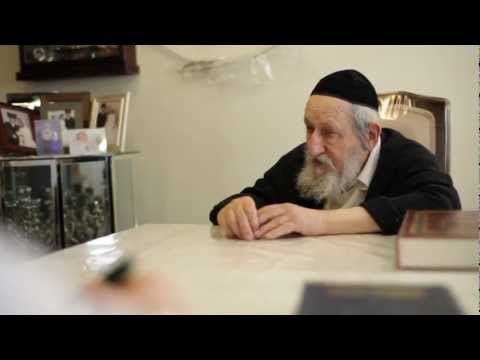

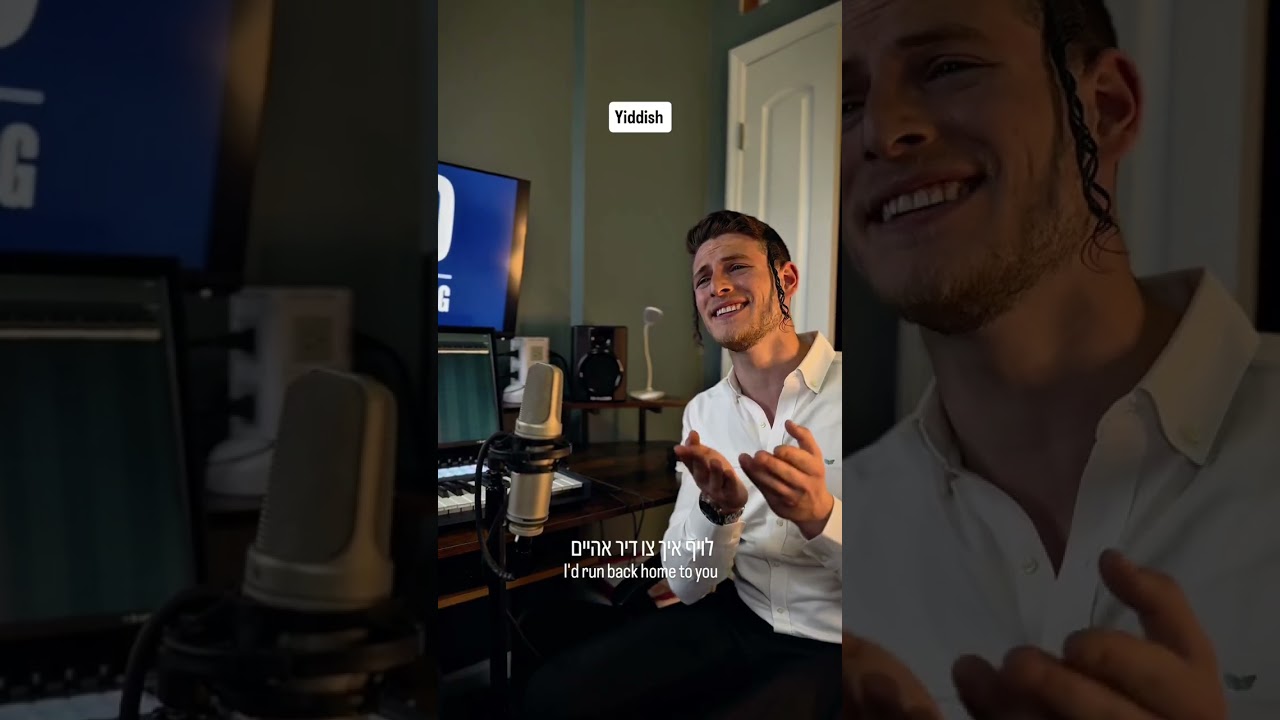
 Shmuel
Shmuel
